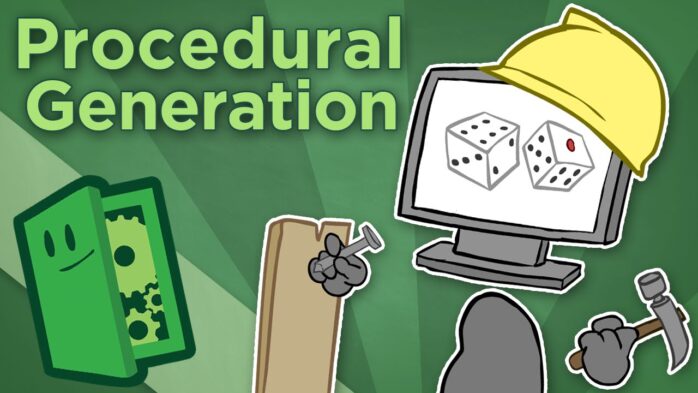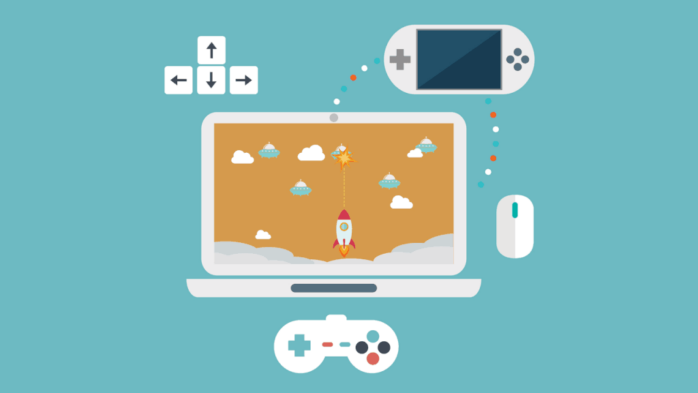
The integration of Artificial Intelligence (AI) and Machine Learning (ML) into game development has transformed the gaming industry, enhancing both the creation process and the player experience. These technologies have evolved from simple enhancements to fundamental components that shape game dynamics, character behavior, and user interaction.
By examining how AI and ML impact game development, it becomes clear that these technologies are revolutionizing the field. From making non-player characters (NPCs) smarter to generating intricate game worlds, the potential is immense. This article will explore the significant changes brought by AI and ML, focusing on their benefits and practical applications in modern game development.
For those interested in the essential tools for game development, visit this link for more information on game development tools.
Enhancing Player Experience
AI and ML have significantly improved the gaming experience by creating more sophisticated and responsive game environments. One of the primary benefits is the development of intelligent NPCs. These characters can now react dynamically to player actions, making interactions more realistic and engaging.
AI algorithms enable NPCs to adapt their strategies based on player behavior, providing a challenging and immersive experience. This adaptability ensures that players remain engaged and face new challenges every time they play, enhancing the overall enjoyment and replayability of the game.
Procedural Content Generation

Procedural Content Generation (PCG) is another area where AI and ML have made a substantial impact. This technique allows game developers to create vast and varied game worlds efficiently. By using algorithms to generate content, developers can produce detailed environments, levels, and scenarios without manually designing each element.
Games like “No Man’s Sky” utilize PCG to create an almost infinite number of unique planets and ecosystems, ensuring that each player’s experience is unique. This method not only saves time but also offers players an expansive and unpredictable game world to explore.
Realistic Simulation and Adaptive Design
AI and ML contribute to making game worlds more realistic and dynamic. Through advanced simulation techniques, these technologies can replicate physical laws, such as gravity and momentum, within the game environment. This results in more lifelike interactions and movements, enhancing the player’s immersion.
Adaptive game design powered by AI allows for real-time adjustments to game mechanics based on player performance. This ensures that the game remains challenging but not frustrating, catering to a wide range of skill levels and keeping players engaged.
Improving Game Testing and Quality Assurance

AI and ML have also revolutionized the game testing and quality assurance processes. Traditional game testing is time-consuming and often misses subtle bugs that can affect gameplay. AI-driven testing tools can simulate numerous scenarios and identify potential issues more efficiently.
These tools analyze gameplay data to detect anomalies, predict player behavior, and provide insights into improving game performance. This leads to a more polished and stable game at launch, enhancing the player experience and reducing the need for post-release patches.
AI in Mobile Gaming

The impact of AI extends beyond traditional video games to the realm of mobile gaming. AI technologies have improved various aspects of mobile game development, from enhancing security to streamlining the development process. AI can analyze user behavior to detect and mitigate security threats, ensuring a safer gaming environment.
AI-powered tools automate repetitive tasks, such as code generation and debugging, allowing developers to focus on more creative aspects of game design. This results in higher-quality games being developed more efficiently.
Challenges and Future Prospects
Despite the numerous benefits, integrating AI and ML into game development presents several challenges. One of the main difficulties is the complexity of implementing these technologies.
Developing AI-driven systems requires specialized knowledge and resources, which can be a barrier for smaller studios. Furthermore, ensuring that AI behaves realistically and ethically in games is a complex task that requires extensive testing and fine-tuning.
Looking ahead, the future of AI and ML in game development is promising. These technologies are expected to become even more integral to the development process, enabling the creation of more sophisticated and immersive games.
Advances in AI and ML will likely lead to more personalized gaming experiences, where games can adapt to individual player preferences and behaviors in real time. This will create more engaging and dynamic game worlds, further blurring the line between reality and virtual reality.
Conclusion
The impact of AI and ML on game development is profound and far-reaching. These technologies have transformed how games are designed, developed, and experienced, offering more realistic, engaging, and personalized gameplay.
As AI and ML continue to evolve, their role in game development will only grow, paving the way for new innovations and possibilities in the gaming industry. The future of game development is undoubtedly intertwined with the advancements in AI and ML, promising exciting and immersive experiences for players around the world.





